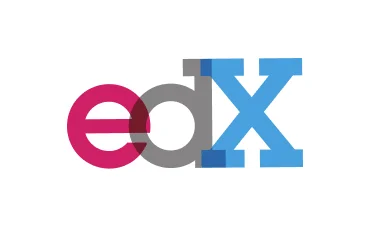When you enroll through our links, we may earn a small commission—at no extra cost to you. This helps keep our platform free and inspires us to add more value.

GeorgetownX: Quantum Mechanics
Learn the quantum mechanics needed to prepare you for the second quantum revolution (focused on quantum sensing). We use a new way to teach quantum for undergraduates by focusing on conceptual ideas and operator manipulations. This allows us to discuss more applications to experiment usually done. You need a background in the full calculus sequence and in math methods. Freshman physics and modern physics is recommended. This course is appropriate for physicists, chemists and engineers.

This Course Includes
 edx
edx 0 (0 reviews )
0 (0 reviews ) 18 weeks at 8-12 hours per week
18 weeks at 8-12 hours per week english
english Online - Self Paced
Online - Self Paced course
course GeorgetownX
GeorgetownX
About GeorgetownX: Quantum Mechanics
Quantum mechanics courses typically require you to learn a lot of high-level math in addition to the science, making it challenging to absorb and apply quantum ideas. Students often take these classes multiple times before they even begin to understand. In this course, we teach quantum mechanics in a representation-independent fashion that focuses on operators. The prerequisite math is lower, and we need to develop less of it. This allows us to focus on developing conceptual understanding and on relating quantum ideas to real experiments. We are amidst the second quantum revolution, where we observe and manipulate individual quanta. This has ushered in the new field of quantum information science, with its three pillars of quantum computing, quantum communication and quantum sensing. This course will prepare you best for the quantum sensing side of quantum information science. You will even learn enough quantum mechanics to understand how the laser interferometry gravitational wave observatory works---one of the engineering marvels of humankind. Prerequisites: The three-semester calculus sequence and a math methods course are required. Freshman physics and modern physics are recommended. This course is appropriate for those with backgrounds in physics, chemistry, and engineering who are interested in learning quantum mechanics with a focus on applications to quantum sensing.
GeorgetownX currently offers a Mathematical and Computational Methods course.
What You Will Learn?
- The course is broken into four parts, covering the following areas: .
- (i) conceptual ideas;.
- (ii) technical developments for working with operators; .
- (iii) applications to experiment;.
- (iv) applications to sensing. .
- It begins with conceptual ideas associated with spins and light, which allow us to discuss complex phenomena, such as Bell experiments, nondemolition experiments, and photon bunching. Then we develop the formal methods needed to work with operators, including four fundamental operator identities. Next, we apply the formal developments to quantum problems, employing the Schr\"odinger factorization method and relating to many quantum experiments. We end by describing how single photons are detected, what a squeezed vacuum is and how LIGO can measure distances small enough that it can detect gravitational waves. The conceptual part is supplemented by over 50 computer-based simulations and animations. Each week has a robust problem set. There are two midterms and one final exam..